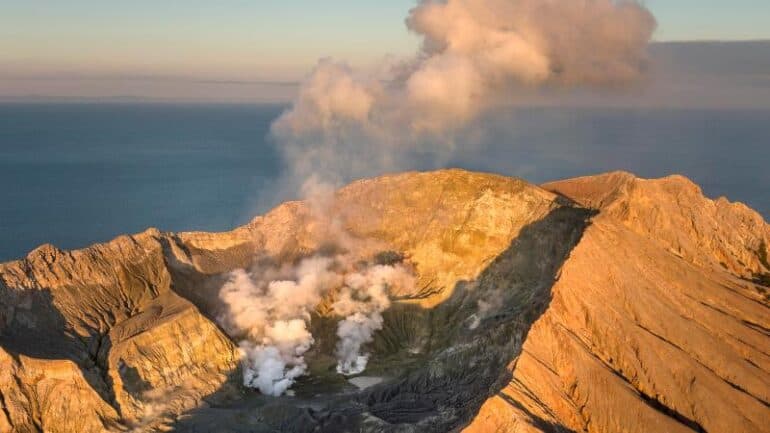Some volcanoes are predictable through closely monitoring volcanic activities, while others are much harder to detect.
Scientists have discovered a way to predict the violence of future eruptions through research on the Kīlauea volcano in 2018.
More recently, a study by Dr Alberto Ardid and Dr David Dempsey and other researchers at the University of Canterbury, New Zealand, further explained the eruption prediction.
Tune into the full episode of Science Explained with host Dr Sophie Calabretto to hear the full recap of this month’s discoveries.
On today’s The Science Briefing, Dr Sophie Calabretto asks Cosmos Magazine journalist Evrim Yazgin about predicting volcanic eruptions and the researchers using artificial intelligence to unlock when a volcano is about to go off.
Yazgin said the research came after New Zealand’s most recent deadly eruption in 2019, Whakaari, also known as the White Island eruption, killed 22 tourists and guides.
This active andesite stratovolcano is the country’s most active volcano in the northeastern Bay of Plenty region.
“It has the typical cone shape, and the eruptions of stratovolcanoes are typically more explosive with the lava and volcanic material being projected upwards,” Yazgin said.
“It used to be a huge tourist hotspot, but this all stopped after the eruption,” he added.
Dr Ardid and Dr Dempsey aimed to find a better way to warn people about the eruption and potentially reduce the death toll.
They have compared 40 years of seismic data from 18 well-recorded eruptions from wet volcanoes in New Zealand, Alaska and Kamchatka in Russia’s Far East and to the west of Alaska.
“In New Zealand, volcanoes are all similar in that they feature a well-developed hydrothermal system beneath the crater. And this is what we call a wet volcano.”
Introducing The Science Briefing: a podcast about the science of everything and your new go-to podcast for your snapshot of science news. Hosted by Dr Sophie Calabretto and featuring journalists from Cosmos Magazine.
